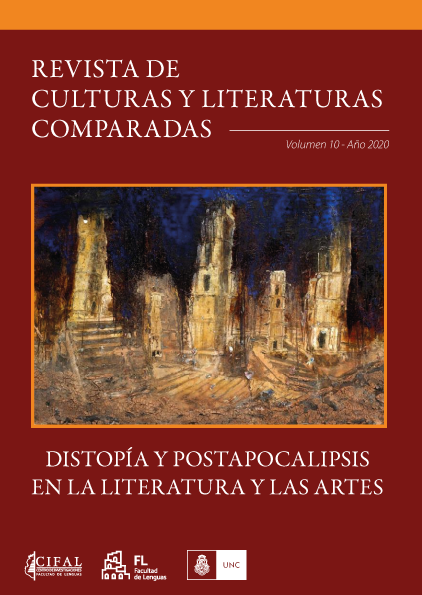The Later Huxley: Beyond Brave New World towards an Ecological and Pacifist Society
Keywords:
environmental debate, mysticism, rationalism, progressAbstract
The aim of my paper is to analyse Aldous Huxley’s utopian novel Island (1962) comparing it to the ideas expounded in his essays Science, Liberty and Peace (1946) The Human Situation (1959), The Politics of Ecology-The Question of Survival (1963) and An Encyclopaedia of Pacifism (1972). As we shall see, Huxley, in accordance with the “green movement” of the seventies and eighties (S.F. Schumacher, 1974; H. Daly, 1977; D.W. Pearce, R.K. Turner, 1990) discusses several important issues that are still, today, at the very core of the environmental debate.
Aldous Huxley is an interesting example of an intellectual who managed to unite the two cultures, scientific and humanistic, and who dedicated his life to the search of new perspectives and yet unexplored horizons. His motto “I keep learning” brilliantly exemplifies his lucidly critical attitude towards the reality surrounding him and his observation of nature. His critical thought is, as we shall see, a complex combination of rationality and creativity, of scepticism and mysticism that finds its synthesis in the philosophical principle of being “realistically idealist”.
In this sense the Utopian island of Pala in Island positions itself as the symbol of Huxley’s spiritual and cultural research, because in it he strives to combine and harmonise the results of natural science and cultural technology with eastern thought. In this work he prospects a new model for civilisation in which mysticism and rationalism manage to blend. In Island he criticises progress as the cause of consumerism and the exploitation of nature, and traditional science and medicine as having been slaves of capitalistic society, politics for its cynicism, as well as for having manipulated and conditioned people; he then concludes by hypothesising a society where a perfect balance between the mind and the body, nature and man exists.
Downloads
References
de Geus M. Ecological Utopias. Utrecht: International Books, 1999.
Deese, Robert S. We are Amphibians, Julian and Aldous Huxley on the Future of our Species. Oakland: University of California Press, 2015.
Dunaway D. K. Huxley in Hollywood. London: Bloomsbury, 1985.
Huxley, Aldous. Machinery, Psychology and Politics. The Spectator 23 Nov. 1929.
---. An Encyclopaedia of Pacifism. London: Chatto § Windus, 1937.
---. Science, Liberty and Peace. London: Chatto § Windus, 1946.
---. Adonis and the Alphabet and Other Essays. London: Chatto § Windus, 1956.
---. The Education of an Amphibian. Adonis and the Alphabet and other Essays. London: Chatto § Windus, 1956.
---. Introduction. Charter, S. P. R. Man on Earth: A Preliminary Evaluation of the Ecology of Man. Sausalito: Angel Island Publication, 1962.
---. The double crisis. Bedford, S. Aldous Huxley: a Biography, vol. 2. London: Chatto § Windus, 1973.
---. Integrate Education. Ferrucci, P., Ed. The Human Situation, Lectures at Santa Barbara. London: Chatto § Windus, 1978. 1-8
---. War and Nationalism. Ferrucci, P., Ed. The Human Situation, Lectures at Santa Barbara. London: Chatto § Windus, 1978.
---. The Human Situation, Lectures at Santa Barbara, ed. by Ferrucci P. London: Grafton Books, 1980.
---. L’isola (trad. it. di Oddera, B.). Milano: Oscar Mondadori, 2017.
---. Una società ecologica e pacifista, a cura di Fortunati, Vita. Milano: Jaca book, 2017
Latouche, Serge. Breve trattato sulla decrescita serena. Torino: Bollati Boringhieri, 2008.
---. Come si esce dalla società dei consumi. Torino: Bollati Boringhieri, 2011.
---. Per un abbondanza frugale. Malintesi e controversie sulla decrescita. Torino: Bollati e Boringhieri, 2011
Maurini, Alessandro. Aldous Huxley. The Political Thought of a Man of Letters. Lexington Books, 2017.
Moylan, Tom. ‘And we are here as on a darkling plain’: Reconsidering Utopia in Huxley. Raffaella Baccolini, Ed. Demand the Impossible Science Fiction and the Utopian Imagination. Oxford: Peter Lang, 2014.
Downloads
Published
Issue
Section
License

This work is licensed under a Creative Commons Attribution-NonCommercial-NoDerivatives 4.0 International License.
Aquellos/as autores/as que tengan publicaciones con esta revista, aceptan los términos siguientes:
a) Los/as autores/as conservarán sus derechos de autor y garantizarán a la revista el derecho de primera publicación de su obra, el cual estará simultáneamente sujeto a la Licencia de reconocimiento de Creative Commons.
b) La cesión de derechos no exclusivos implica que la publicación de los artículos en la presente revista no quita la posibilidad o el derecho al autor/a de publicar su obra de manera posterior en otras revistas u órganos editoriales y la autorización por parte de los/as autores/as para que el trabajo sea depositado en los repositorios institucionales, tales como el Portal de Revistas de la Universidad Nacional de Córdoba.



